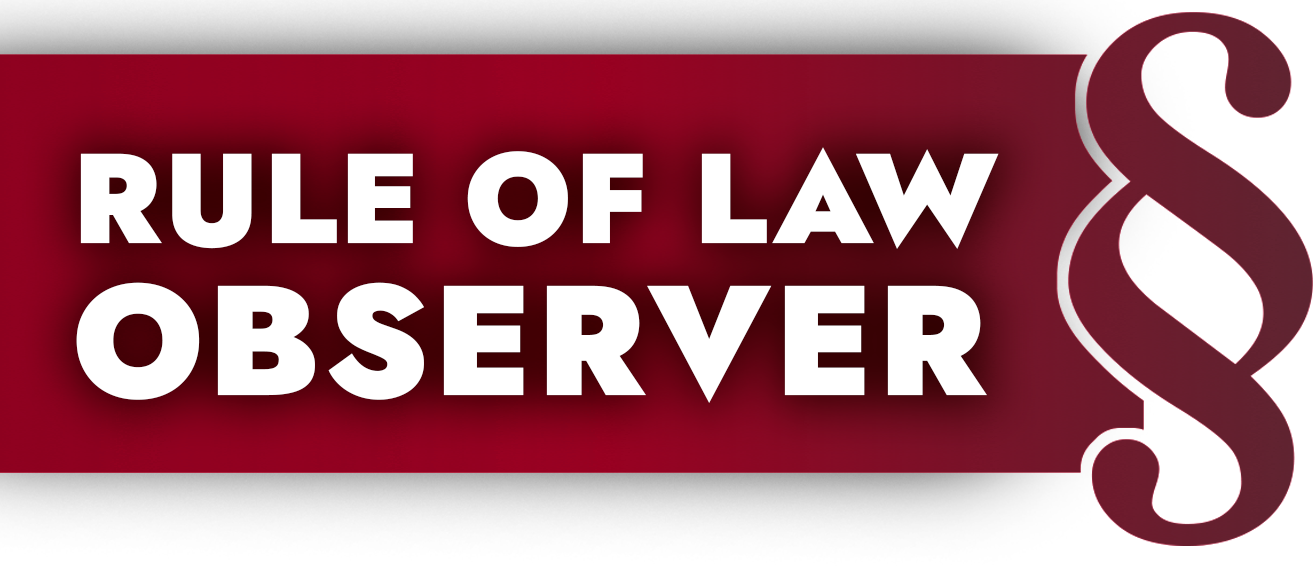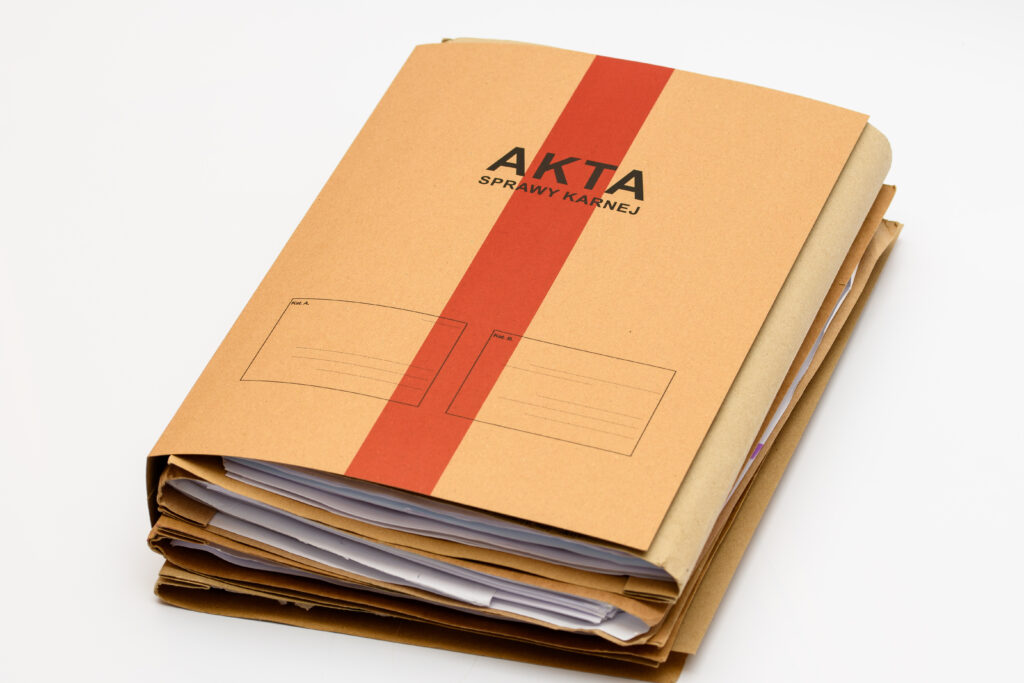- On 15 March, the media reported the death of 66-year-old Barbara Skrzypek, one of the closest associates of Jarosław Kaczyński, the president of Law and Justice (PiS) – the main opposition party to the government of Donald Tusk.
- The woman died three days after being interrogated by Prosecutor Ewa Wrzosek, who reports to the Minister of Justice Adam Bodnar and is known for her politicised, biased statements against PiS.
- The hours-long interrogation was conducted without a break and without a court reporter, in conditions of gross procedural inequality – it was impossible for Barbara Skrzypek’s professional attorney, to participate in it, while two lawyers associated with the current ruling camp were allowed to do so.
- The information about the death was provided by the president of Telewizja Republika, who said ‘As far as I know, this hearing was a form of pressure, if not something worse, to extract testimony incriminating Jarosław Kaczyński. And that’s all I managed to find out: that she was in a very poor mental state after the interrogation and that several hours later Ms Skrzypek was dead.
- The Warsaw-Praga District Prosecutor’s Office has launched an investigation into the involuntary manslaughter of Barbara Skrzypek by the persons participating in the interrogation.
On 15 March 2025, the Polish Press Agency released information about the death of 66-year-old Barbara Skrzypek. Until her retirement five years ago, she held important positions in the Law and Justice Party (PiS), including head of the chancellery, director of the party’s presidential office and board member of the Lech Kaczyński Institute foundation. From 2005 to 2021, she was a member of the supervisory board of Srebrna Sp. z o.o. It was her involvement in this company that led to her being summoned on 2 March for questioning in a case related to Srebrna’s construction project, which took place ten days later on 12 March. The news of her death after the hearing was first reported by the editor-in-chief of the right-wing TV Republika, Tomasz Sakiewicz, who commented that Barbara Skrzypek ‘was summoned a few days ago to a hearing that could be described as an extraction hearing because it lasted 5 hours’ and ‘it has all the hallmarks of harassment’. He added, ‘This interrogation, as far as I know, was a form of pressure, if not something worse, to extract testimony incriminating Jarosław Kaczyński. And that’s all I managed to find out: that she was in a very poor mental state after the interrogation and that several dozen hours passed and Ms Skrzypek is dead.
In a statement from the Regional Prosecutor’s Office in Warsaw on 17 March, it was reported that ‘according to the 9-page witness interview protocol, the trial proceedings began at 10:00 a.m. and ended at 2:40 p.m. A break of several minutes was ordered during the interview. The hearing, conducted by the case officer, Prosecutor Ewa Wrzosek, was attended by the representatives of the victim – attorney Jacek Dubois and attorney Krystian Lasik. However, the Niezalezna.pl portal established that the break actually occurred after the end of the questioning, i.e. free speech and answering questions, and its purpose was to correct typos in the minutes before they were read and signed by all participants. The minutes of the hearing were made public on 18 March.
Prosecutor Ewa Wrzosek is publicly known for her unfavourable statements towards PiS and its politicians. From October 2024, she held a special position with the Minister of Justice, Adam Bodnar, as the minister’s advisor on the conditions of prosecutorial service. However, in December 2024, she was dismissed from this position after publicly criticising the minister and stating that ‘this is not the time to strictly adhere to the letter of the law in a positivist manner’ and that Bodnar should make ‘unpopular decisions that could mean environmental ostracism’. On 3 February 2025, however, she was delegated to perform official duties in the 3rd Department for Economic Crime of the Regional Prosecutor’s Office in Warsaw. The investigation into the Srebrna company was launched just a week later, on 10 February.
Barbara Skrzypek’s professional representative, attorney Krzysztof Gotkowicz, twice requested to be allowed to participate in the questioning as the witness’s representative. However, Prosecutor Ewa Wrzosek refused to allow him to participate under Article 87(3) of the Polish Code of Criminal Procedure (KPK), even though she had previously allowed two lawyers representing the injured party, Jacek Dubois and Krystian Lasik, who are associated with the current ruling party, to participate in the hearing. In a statement published on 16 March, Gotkowicz emphasised: ‘I pointed out the witness’s poor state of health and the presence of two representatives of the notifying party, which could have been interpreted by the witness as an additional element of pressure. After my statement, Ms Barbara Skrzypek also personally presented her health problems’. A written justification for this bizarre decision was not provided until 25 March. Jacek Dubois has been personally connected to the Civic Platform (PO) party, which is led by Donald Tusk, for several decades. He was elected a member of the State Tribunal four times (2012, 2015, 2019, 2023) on the recommendation of this party. As a practising lawyer, he was also a partner of PO senator Aleksander Pociej. Dubois’ ex-wife, Maria Ejchart, is the Deputy Minister of Justice in Bodnar’s ministry. One of Krystian Lasik’s clients is Tomasz Mraz, a former director of a department at the Ministry of Justice, whose testimony led to the arrest of priest Michał Olszewski and two former Ministry officials associated with the PiS camp. The court reporter did not participate in the hearing either.
The witness was therefore in a situation of gross procedural inequality from the very beginning, in a situation of deepening severe psychological stress, which in itself raises serious moral and procedural doubts, regardless of the death it may have caused. Adam Bodnar in 2018, still as the Commissioner for Human Rights, himself condemned the occurrence of this type of situation, stating that ‘such persons should have the status of an assisted witness, meaning they would have to be questioned in the presence of a lawyer – to ensure the constitutional right to defence. This would also avoid forcing such a person to make self-incriminating statements, e.g. through torture or inhuman or degrading treatment.’ However, years later, as a minister, he did nothing to stop these practices, and the prosecutor under his authority herself led to this situation, which had tragic consequences.
According to Article 87(2) of the Code of Criminal Procedure, ‘a non-party may appoint a representative if their interests in the pending proceedings so require’. Paragraph 3 stipulates that ‘the court, and in preparatory proceedings the prosecutor, may refuse to allow the participation in the proceedings of the attorney referred to in paragraph 2 if it considers that the defence of the interests of the non-party does not require it’. However, the President of the Polish Bar Association (Naczelna Rada Adwokacka, NRA), Przemysław Rosati, stated that although Prosecutor Wrzosek’s decision was ‘within the law’, he had ‘been practising as a lawyer for 15 years and […] had never had a prosecutor refuse to allow him to participate in the questioning of a witness’. For this reason, as early as 20 March, five days after the death of Barbara Skrzypek, the Presidium of the NRA submitted a petition to the President of the Republic of Poland, both chambers of parliament and the government to repeal paragraph 3 of the Code of Criminal Procedure, whose application in current practice – according to the Polish bar association – violates Article 47, sentence 3 of the Charter of Fundamental Rights of the European Union, according to which ‘everyone shall have the possibility of being advised, defended and represented’.
On 18 March, the President of the Republic of Poland, Andrzej Duda, commented on the matter, stating that it is hard to deny that this health collapse, which ultimately led to the death of Ms Barbara Skrzypek, took place several dozen hours after the hearing in which she took part in Warsaw. The Regional Prosecutor called her there through Prosecutor Ewa Wrzosek, conducting the investigation into the so-called two towers case, where she was summoned as a witness. The president pointed out that Jacek Dubois ‘had not hesitated over the past years to publish […] on the Internet and to express himself in a way that was, to put it mildly, critical – not to say: at times even hateful – about the previous ruling camp, about the United Right camp. In view of the above, well – one can not only get the impression, but in fact it probably was the case that Barbara Skrzypek was interrogated as a witness by three people by the prosecutor and by the two representatives whose impartiality in the case – to put it mildly – raises doubts. But, unfortunately, there are also doubts about the impartiality of the prosecutor herself, who is also known for her very political and very harsh statements, which is very important and very unfortunate. The president has sent a letter to Prime Minister Donald Tusk about this matter.
In a communication dated 18 March, the Warsaw-Praga District Prosecutor’s Office in Warsaw announced that on 17 March 2025, it had opened an investigation under reference number 3042-1.Ds.48.2025 into the involuntary manslaughter of Barbara Skrzypek on 15 March 2025 in Warsaw. Article 155 of the Criminal Code provides for a prison sentence of between three months and five years for this offence. A communication from the public prosecutor’s office dated 28 March clarified that not only the participants of the hearing (Prosecutor Ewa Wrzosek and lawyers Jacek Dubois and Krystian Lasik) and the deceased’s attorney (lawyer Krzysztof Gotkowicz) were summoned for questioning, but also members of the deceased’s immediate family (son and husband) and Jarosław Kaczyński himself. The hearings took place at the beginning of April. It is still unknown who will bear responsibility for the death of the 66-year-old victim of abuse of criminal procedure by representatives of Donald Tusk’s government and the prosecutor’s office politicised by Adam Bodnar.
Lawyer Nikodem Bernaciak.
Illustration source: Adobe Stock.

